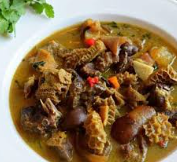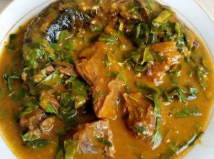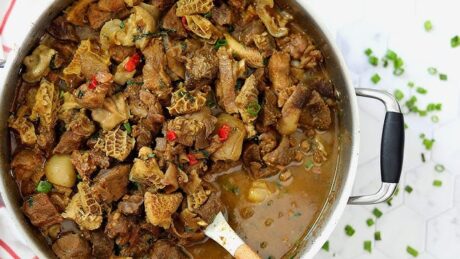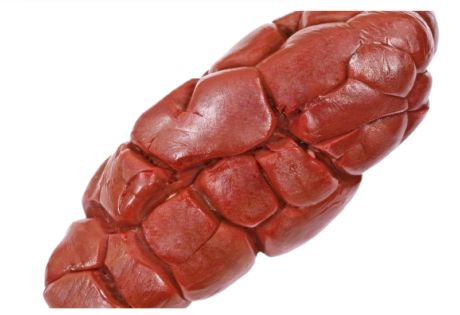Scent leaves -Efirin – per pack (Subscriber price only)
Description
Scent leaf, scientifically known as Ocimum gratissimum, is a highly aromatic herb widely used in Nigerian cooking for its strong, pleasant fragrance and flavor. Known as Efinrin in Yoruba, Nchanwu in Igbo, and Daidoya in Hausa, it adds a unique taste to soups, stews, and sauces. Aside from its culinary role, scent leaf is also valued for its medicinal and health-boosting properties in traditional medicine.
Sources
Grown across Nigeria, particularly in home gardens and farms in the South-West, South-East, and Middle Belt regions. It thrives in both the rainy and dry seasons.
Health Benefits
-
Boosts immunity due to its rich content of vitamins and antioxidants.
-
Aids digestion and helps relieve bloating and stomach discomfort.
-
Antibacterial and antifungal properties help fight infections.
-
Helps regulate blood sugar when consumed regularly.
-
Relieves cough and cold when boiled and taken as herbal tea.
Common soups or dishes you can use it for
-
Pepper soup
-
Yam porridge
-
Ofada sauce (Ayamase)
-
Vegetable sauce for rice or yam
-
Ogbono soup (for added flavor)
Oha – per pack (Subscriber price only)
Oha (Pterocarpus mildbraedii) is a unique leafy vegetable native to southeastern Nigeria. Known for its slightly bitter-sweet and earthy taste, Oha leaves are tender and delicate, making them perfect for soups. The leaves are usually torn by hand rather than cut, as chopping can make them turn dark and alter the flavor. Oha is a seasonal vegetable, and its fresh leaves are highly sought after when in season.
Sources
Enugu, Imo, and Abia
Health Benefits
-
Rich in iron, which helps in the formation of healthy red blood cells.
-
Contains calcium and magnesium for strong bones and teeth.
-
Supports digestion and helps maintain healthy metabolism.
-
Boosts the immune system with its natural antioxidants.
-
Promotes skin health with its vitamin content.
Common soups or dishes you can use it for
-
Oha soup (traditionally made with cocoyam paste and palm oil)
-
Mixed vegetable soups
-
Oha with egusi (melon seed) soup
-
Oha and achara soup (popular in some eastern communities)
Shoko -per pack (Subscriber price only)
Description
Shoko, also called Lagos spinach or celosia leaves, is a traditional Nigerian leafy vegetable native to tropical Africa. It is widely grown in Nigeria, particularly in the Southwest, and is prized for its slightly bitter taste which mellows when cooked.
Sources
Lagos, Ogun, Oyo, Osun, and Ondo states.
Health benefits
-
Rich in antioxidants – helps fight free radicals and support cell health.
-
High in vitamin C – boosts immunity and promotes wound healing.
-
Good source of folate – important for red blood cell production and pregnancy health.
-
Contains iron – supports blood health and energy levels.
-
Aids digestion – thanks to its dietary fiber content.
Common soups you can use it for
-
Efo Riro (traditional Yoruba vegetable stew)
-
Efo Shoko (Shoko-based vegetable sauce)
-
Egusi Soup (melon seed soup with greens)
-
Ogbono Soup
-
Okra Soup











